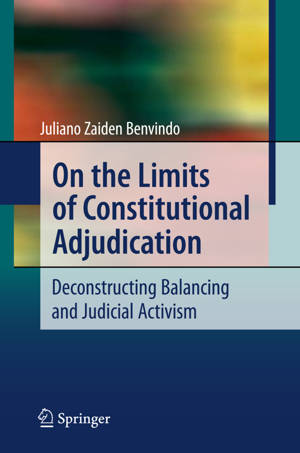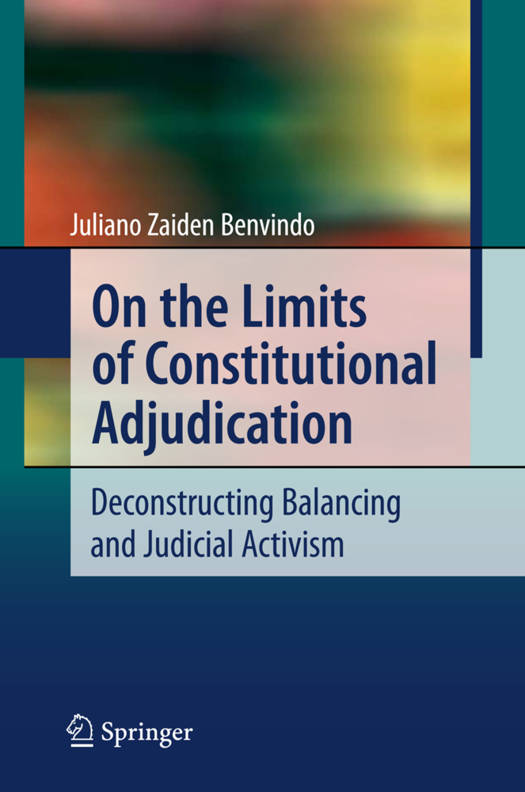
Bedankt voor het vertrouwen het afgelopen jaar! Om jou te bedanken bieden we GRATIS verzending (in België) aan op alles gedurende de hele maand januari.
- Afhalen na 1 uur in een winkel met voorraad
- In januari gratis thuislevering in België
- Ruim aanbod met 7 miljoen producten
Bedankt voor het vertrouwen het afgelopen jaar! Om jou te bedanken bieden we GRATIS verzending (in België) aan op alles gedurende de hele maand januari.
- Afhalen na 1 uur in een winkel met voorraad
- In januari gratis thuislevering in België
- Ruim aanbod met 7 miljoen producten
Zoeken
On the Limits of Constitutional Adjudication
Deconstructing Balancing and Judicial Activism
Juliano Zaiden Benvindo
Hardcover | Engels
€ 195,95
+ 391 punten
Uitvoering
Omschrijving
Juliano Z. Benvindo investigates the current movement of constitutional courts towards political activism, especially by focusing on the increasing use of the balancing method as a "rational" justification for this process. From the critical perception of the serious risks of this movement to democracy, the book takes as examples two constitutional realities, Germany and Brazil, in order to discuss the rationality, correctness, and legitimacy of constitutional decisions within this context.Through a dialogue between Jacques Derrida's deconstruction and Jürgen Habermas's proceduralism, the author confronts Robert Alexy's defense of the balancing method as well as those two constitutional realities. This confrontation leads to the introduction of the concept of limited rationality applied to constitutional democracy and constitutional adjudication, which affirms the double bind of history and justice as a condition for a practice of decision-making committed to the principle of separation of powers.
Specificaties
Betrokkenen
- Auteur(s):
- Uitgeverij:
Inhoud
- Aantal bladzijden:
- 421
- Taal:
- Engels
Eigenschappen
- Productcode (EAN):
- 9783642114335
- Verschijningsdatum:
- 13/08/2010
- Uitvoering:
- Hardcover
- Formaat:
- Genaaid
- Afmetingen:
- 156 mm x 234 mm
- Gewicht:
- 793 g

Alleen bij Standaard Boekhandel
+ 391 punten op je klantenkaart van Standaard Boekhandel
Beoordelingen
We publiceren alleen reviews die voldoen aan de voorwaarden voor reviews. Bekijk onze voorwaarden voor reviews.









